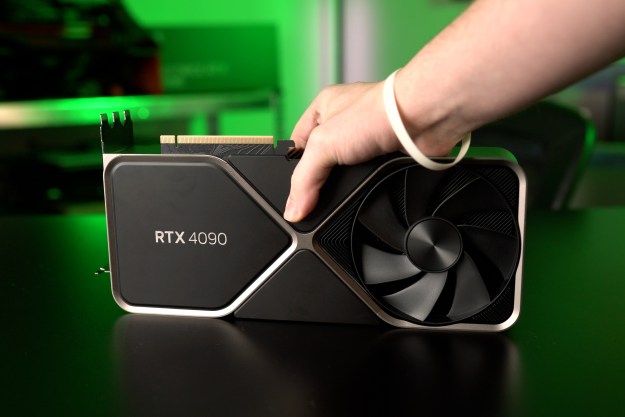
The controversy this time revolves around Nvidia’s GameWorks libraries, a collection of graphical technologies that they offer to developers to easily render difficult objects like hair and shadows. The problem arises from the perception that these technologies, specifically Nvidia’s HairWorks, suffer performance issues on AMD graphics cards. That’s where everyone starts pointing fingers.
AMD users are understandably upset when a brand new game doesn’t run nearly as well as expected, and the culprit appears to be the liberal of GameWorks libraries in the development of The Witcher 3. Users are claiming that since GameWorks technologies are designed to be run by Nvidia GPUs only, computers with AMD cards need to offload them to the CPU instead, creating massive drops in performance.
Of course, the next logical step is for AMD users to accuse Nvidia of locking everyone else out of their technology, and for paying the developers to purposefully make the experience drag when not played on Nvidia cards.
Nvidia responded with claims that they share as much as they can based on their business model. Then the development team for Witcher 3 said AMD didn’t get back to them. Then the AMD team said GameWorks was implemented late without any warning, and they didn’t have time to fix the performance issues.
Developers and users fired back by saying that AMD hardware is sub-par, and doesn’t play well with newer games because it’s just slower, rather than because of software compatibility issues. Now everyone is upset, except the people who just want to play Witcher 3.
Now everyone is upset, except the people who just want to play Witcher 3.
This sort of quibbling is standard fare for the PC gaming community, and an unfortunate folly of hardware variance. What’s more important than the taking up of weapons though, is the question of proprietary technology — and what’s at risk is the health of the PC gaming enthusiast community, already hurt by the same sort of fighting and name-calling that we’re seeing here.
Technologies like Nvidia’s GameWorks and AMD’s Gaming Evolved (although Gaming Evolved does allow changes to and optimization of their software) aren’t just about making the experience better for users, they’re about selling more hardware.
In an increasingly open-source ecosystem, it can be hard for users to see the value of proprietary technology and software, but in the business world, it’s everything. Opening up all of the technologies might seem an infuriatingly simple solution to end users, but the GameWorks vs. Gaming Evolved debate has actually been raging at least since the introduction of 2013’s Tomb Raider.

AMD has its own hair rendering solution, called TressFX, which was able to render and tessellate hair much better on their own hardware than it was on Nvidia’s’. However, within a month or two of Tomb Raider‘s release, the software was running comparably on both cards, because AMD’s more open agreement allowed developers, as well as Nvidia, to optimize their drivers and code to work better with the technology. Because Nvidia’s use agreement doesn’t allow for that sort of tinkering and redesigning, it either works and you implement it across the board, or you don’t use it at all.
That’s not to say there isn’t room for Nvidia to release GameWorks as open source software, or for developers to coordinate efforts with both manufacturers to produce a top quality experience, but it’s not happening now, and users are starting to notice.
Editors' Recommendations
- The sad reality of AMD’s next-gen GPUs comes into view
- You shouldn’t buy these Nvidia GPUs right now
- Nvidia is bringing ray tracing and DLSS 3 to your car
- Nice try, Intel, but AMD 3D V-Cache chips still win
- AMD needs to fix this one problem with its next-gen GPUs



